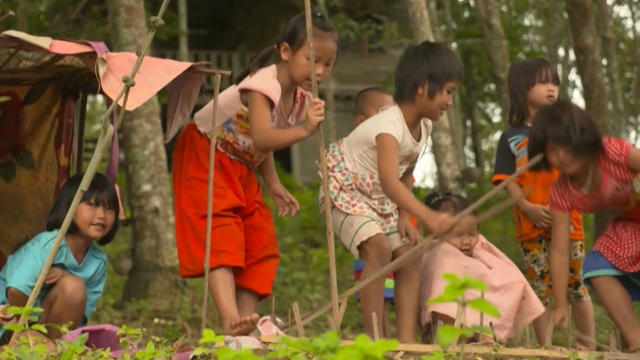Some 10,000 people gathered at an outdoor reception in Thailand to honor a youth sports team trapped in a flooded cave, and the people who worked to rescue them. Divers and military personnel from around the world pitched in to help, in an effort led by Thailand’s Navy Seals.
The plight of the 12 boys and their coach also focused attention on another problem: the fact that the coach and three of the boys were stateless. They’ve since been granted Thai citizenship, but some half-Million applicants are still waiting.
CGTN’s Tony Cheng has the details.
Tham Luang cave has now been closed and the eyes of the world have moved on. But the cave rescue did raise some very important issues. Of the group trapped inside, three of the boys and the coach were stateless–they didn’t have Thai citizenship. While their citizenship has been fast-tracked, the issue remains an enormous problem for nearly half a million people in Thailand.
Just a few kilometers down the road, the Thai flag flies above a village perched on a remote hilltop. A quarter of the residents here are stateless members of the Lahu tribe who have populated the fluid border area for centuries.
In the village square young men fashion furniture from wrought iron and large hunks of local timber. The work is commissioned by a local NGO, keen to help employ these young stateless men, who can’t find legitimate work because they don’t have official papers. One of them, Yanghor who is ethnically Chinese but was born and raised in Thailand, has been waiting for citizenship for more than a decade. But he bears no grudge against the boys whose status was fast-tracked.
“On the one hand I’m glad for them, but for all of us who don’t have citizenship we feel a bit sorry for ourselves,” Yanghor said. “But it will give them a bright future.”
A bit further up the hill, children play at building houses, trying to lay down foundations, but with no official papers they can’t attend schools or receive important benefits like healthcare. These are some of the poorest parts of Thailand, with people living well below the poverty line. The path to citizenship is excessively complicated and takes not years but decades, and that, said the NGO’s, makes stateless people particularly vulnerable to crime and human trafficking.
“I think because of the lack of citizenship it makes them have less choice in their life and without hope, many people won’t dream for a further of brighter future,” said Somkiat Jakchee, the director of Project Justice.
So while the boys of the wild boars football team are being celebrated for their heroic escape, hundreds of thousands remain trapped in stateless limbo.
 CGTN America
CGTN America

